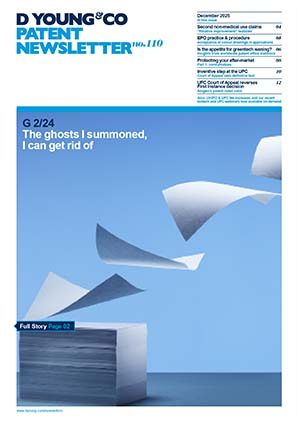Earlier international preliminary examination under PCT Chapter II
As of 01 July 2019, changes to Rule 69.1(a) PCT encourage international preliminary examination to begin earlier for applicants who choose to enter PCT Chapter II.
Chapter II is an optional stage of the PCT that allows examination of an application in the international phase. When entering Chapter II, users may voluntarily amend their application and engage in discussion with international examiners.
Users often enter Chapter II with the goal of obtaining a positive International preliminary examination report (IPRP) indicating that their application meets the major requirements for the grant of a patent. A positive IPRP is not legally binding, but it can be a useful tool for speeding up grant of an application in the national/regional phases, and commercially for indicating the potential strength of an IP position.
PCT Chapter II will begin earlier
The change to Rule 69.1(a) PCT has reversed the status quo for when examination under PCT Chapter II begins. Unless users proactively request a delay, examination will now begin as soon as:
- All essential requirements to enter Chapter II are met; and
- When users provide amendments or a supporting statement.
Only the timing of when examination begins has been affected by the new legal effect of Rule 69.1(a) PCT. The essential requirements and the deadlines for entering Chapter II remain unchanged. These include:
- Filing a demand;
- Paying the required fees; and
- The provision of a search report (or equivalent declaration) and written opinion from the International Searching Authority (under Chapter I).
Users rights to amend their application and engage in discussion with the international examiner are unaffected by the new legal effect of Rule 69.1(a) PCT.
More time for examination
By starting examination earlier, the international examiner now has more time to assess the application as well as any amendments and the statement provided by the user. There is also more time for users to engage in discussion with the international examiner when outstanding matters remain that may lead to a negative IPRP. This discussion will likely be in the form of the international examiner having more time to issue a second written opinion to which users may respond.
Caution: there are no guarantees that starting examination earlier and having more discussion will lead to the goal of achieving a positive report (IPRP).
In cases with more discussion under Chapter II, users will also need to commit further time and upfront costs in preparing and providing additional responses.
Nullifying the new legal effect
The new legal effect cannot force users into an earlier start for examination under Chapter II.
Users may choose to sacrifice the added time for examination provided by the Rule 69.1(a) PCT change, in favour of using that time to consider possible amendments to their application after having received the written opinion under Chapter I.
Users may prevent the effects of the rule change by:
- Not meeting the essential requirements for Chapter II significantly earlier than their required deadlines.
- Meeting the essential requirements for Chapter II early, but not filing amendments or a supporting statement at the same time. This will result in an invitation from the international examiner to provide amendments within a reasonable time limit.
- Meeting the essential requirements for Chapter II early and filing amendments but proactively requesting a delay in examination until the end of the deadline for meeting the requirements.
Users take note that as of 01 July 2019 changes to Rule 69.1(a) PCT may encourage international preliminary examination under PCT Chapter II to begin earlier than expected. Users rights remain essentially unchanged and measures can be taken to prevent this new legal effect.
In short
The new legal effect only influences the timing as to when examination under PCT Chapter II may start once all requirements are met and application amendments (or a statement) are provided.
The new legal effect provides international examiners with more time to examine applications, enabling more time for discussion. This may improve the quality of examination but is no guarantee of achieving a positive report (IPRP).
Users retain the right to take steps to delay the earlier start of examination provided by the new legal effect of Rule 69.1(a) PCT.
